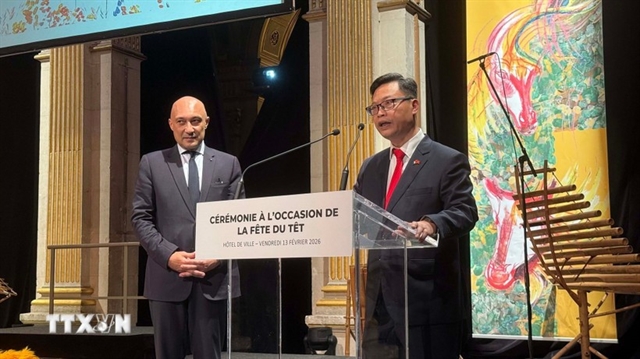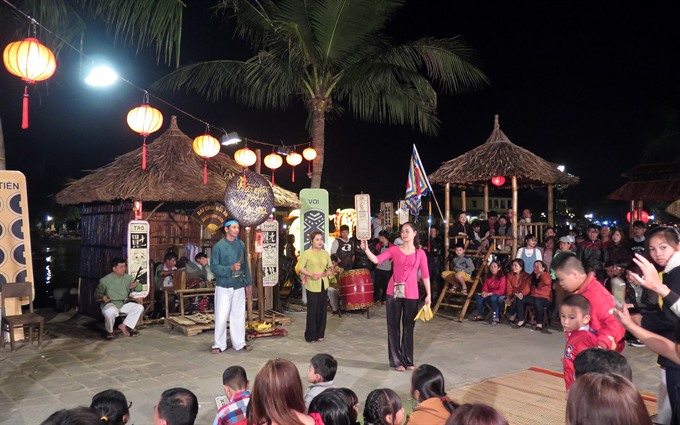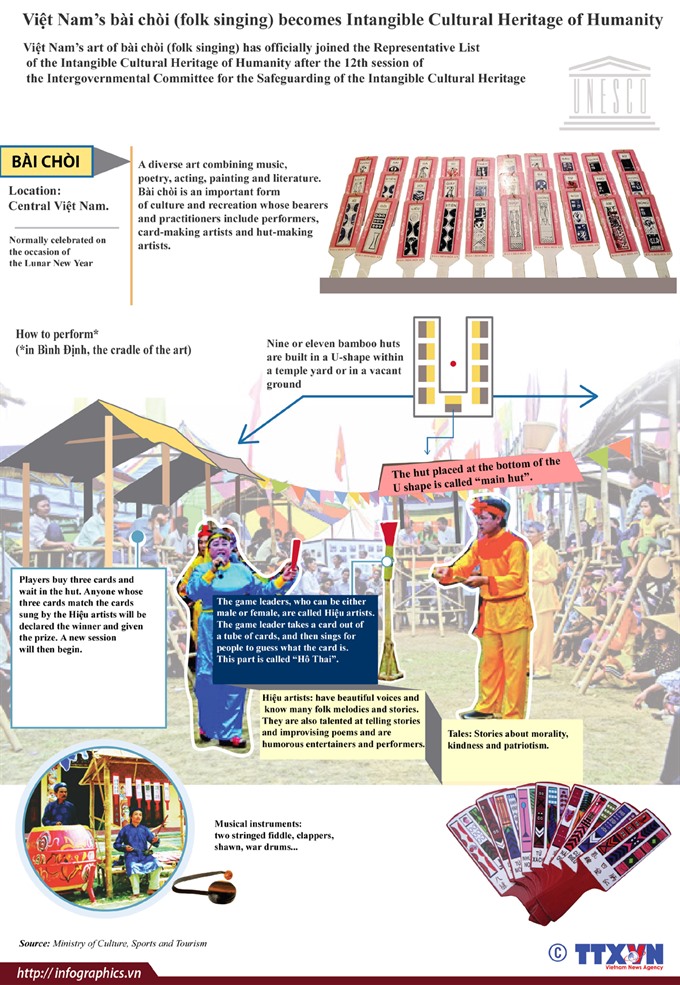 Life & Style
Life & Style

Việt Nam’s bài chòi (folk singing) has been officially honoured as an Intangible Cultural Heritage of Humanity by United Nations Educational, Scientific and Cultural Organisation (UNESCO).
 |
| Community pride: Việt Nam’s bài chòi (folk singing) have been recognised as the Intangible Cultural Heritage of Humanity by United Nations Educational, Scientific and Cultural Organisation (UNESCO). — VNA/VNS Photo Đỗ Trưởng |
HÀ NỘI — Việt Nam’s bài chòi (folk singing) has been officially honoured as an Intangible Cultural Heritage of Humanity by United Nations Educational, Scientific and Cultural Organisation (UNESCO).
The decision was announced on Thursday at UNESCO’s 12th session of the Intergovernmental Committee for the Safeguarding of the Intangible Cultural Heritage, held on South Korea’s Jeju Island.
Bài chòi is Việt Nam’s tenth cultural practice to receive this title from UNESCO.
The committee examined 35 nominations to the Representative List, which now includes bài chòi, six nominations to the Urgent Safeguarding List and one request for removal and transfer, which was Việt Nam’s xoan singing.
Xoan singing, another form of Vietnamese folk music, is expected to be removed from the List of Intangible Cultural Heritage in Need of Urgent Safeguarding and added to the Representative List of the Intangible Cultural Heritage of Humanity.
The file of bài chòi received positive evaluations from the 24 member countries of the Intergovernmental Committee.
Bài chòi in Central Việt Nam is a diverse art combining music, poetry, acting, painting and literature. Its practitioners include performers, card-making artists and hut-making artists. Performers and their families play a major role in safeguarding the practice, and numerous dedicated groups continue to practise and celebrate it. Most performers learn their skills within their family but specialist artists also transmit their knowledge in clubs, schools and associations.
 |
| Việt Nam’s bài chòi (folk singing) have been recognised as the Intangible Cultural Heritage of Humanity by United Nations Educational, Scientific and Cultural Organisation (UNESCO). — Infographic Thái Hà |
According to the Intergovernmental Committee for the Safeguarding of the Intangible Cultural Heritage, the art of bài chòi is an important form of culture and recreation within the village community, providing entertainment as well as a context for socialising and enjoyment of the arts. Bài chòi stories include lessons on morality and compassion and love for the village and nation and national unity.
The nomination file also clearly described the efforts in the past and present to preserve the heritage and ensure the existence, groups and clubs of bài chòi, with the assistance of the Government.
The art form has been recognised as national intangible cultural heritage in the 2014-16 phase by Việt Nam’s Ministry of Culture, Sports and Tourism. The departments of Culture, Sports and Tourism of the nine provinces where bài chòi is practised have jointly coordinated with local communities to submit annual reports to the Ministry of Culture, Sports and Tourism on the heritage.
UNESCO’s recognition confirms the diversified cultures of Việt Nam, strengthens the local community’s connectivity, promotes cultural diversity and encourages communication among individuals, communities and peoples. — VNS




